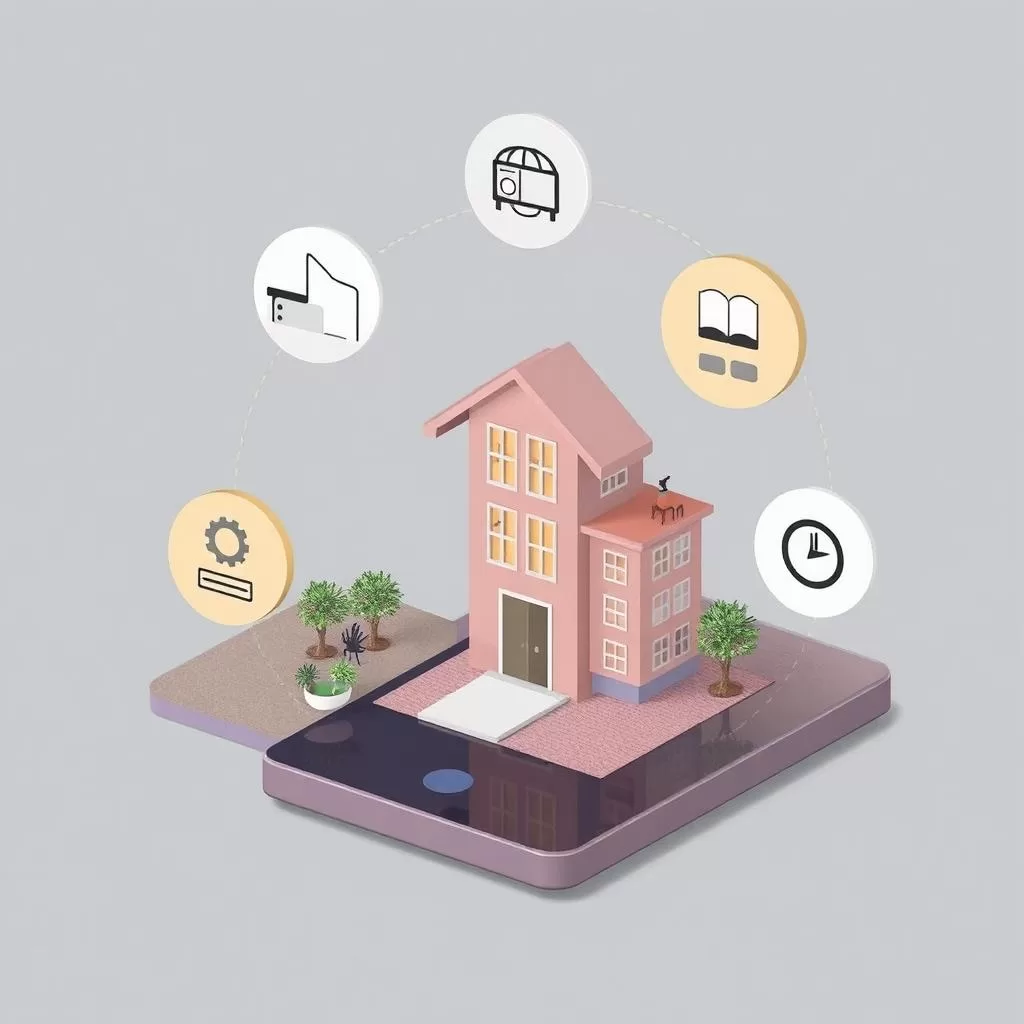Quantum Computing vs. Classical Computing: The Future of Processing Power
The battle between quantum computing vs. classical computing is shaping the future of technology, AI, and cybersecurity. While classical computers power today’s world, quantum computers promise unparalleled speed and problem-solving abilities.
But will quantum computing replace traditional computers? Or will they work together?
What You’ll Learn in This Article:
✅ The key differences between quantum and classical computing
✅ How quantum computing is revolutionizing AI, cryptography, and medicine
✅ Whether quantum computers will replace traditional computers
What is Classical Computing?
Classical computing is the foundation of modern digital technology. At its core, a classical computer processes and stores data using binary code — a system of 0s and 1s that represent two possible states: off and on. These binary digits, known as bits, are the fundamental units of information in classical systems.
To perform calculations and execute complex tasks, classical computers rely on several key components:
✅ Transistors – These tiny electronic switches are the building blocks of all computing devices. A single computer chip can contain billions of transistors, each responsible for controlling the flow of electricity. They form the essential infrastructure that enables computers to process and store data efficiently.
✅ Logic Gates – Built from transistors, logic gates are used to perform basic logical functions such as AND, OR, and NOT. These gates form the circuits that process binary data and execute the instructions given to the computer. By combining multiple gates, classical systems can carry out advanced computations that power everything from spreadsheets to search engines.
✅ Moore’s Law – Originally proposed by Intel co-founder Gordon Moore, this observation predicts that the number of transistors on a microchip doubles approximately every two years. This trend has historically led to exponential growth in computing power.
For decades, Moore’s Law has fueled the rapid development of faster, smaller, and more powerful computers. However, in recent years, the pace of advancement has slowed, signaling potential physical and economic limits to traditional semiconductor scaling.
In summary, classical computing has revolutionized how we live, work, and communicate. However, as we approach the physical limits of transistor miniaturization, new frontiers such as quantum computing are being explored to push the boundaries of what’s possible.
💡 Example: Laptops, smartphones, and supercomputers all use classical computing to perform everyday tasks.
🔗 Related: Top 10 Emerging Technologies in 2025
What is Quantum Computing?
Quantum computers use qubits instead of binary bits. Unlike classical bits (0 or 1), qubits can exist in multiple states at the same time (superposition), enabling them to solve complex problems exponentially faster.
🔹 Key Quantum Principles:
Quantum computing represents a radical shift from the binary logic of classical computers. Unlike classical computers that rely on bits set strictly to 0 or 1, quantum computers use quantum bits, or qubits, which follow the unusual and fascinating rules of quantum mechanics.
Thanks to these principles, qubits can exist in multiple states at once, enabling quantum systems to process information in entirely new ways. As a result, they open the door to possibilities far beyond the capabilities of even the most advanced classical machines.
Let’s explore the core principles that make quantum computing so powerful:
✅ Superposition
Unlike classical bits, which can only exist in one state at a time (either 0 or 1), qubits have the unique ability to exist in multiple states simultaneously. This phenomenon is known as superposition. In practical terms, superposition allows a quantum computer to process many possibilities at once, significantly expanding its potential processing power. For instance, with just 2 qubits, a quantum system can represent 4 states at once. What’s even more remarkable is that this number grows exponentially with each additional qubit, unlocking vast computational potential.
✅ Entanglement
Another fascinating quantum principle is entanglement. When qubits become entangled, the state of one instantly influences the state of another — even if they are separated by vast distances. As a result, this instant connection forms the foundation of quantum entanglement.
Consequently, entangled qubits can work together in a highly coordinated manner. This allows quantum computers to perform complex calculations far more efficiently than classical systems.
In fact, it’s almost as if information is shared across qubits faster than the speed of light. This creates an unprecedented level of computational synergy that classical computing simply cannot achieve.
✅ Quantum Tunneling
Classical computers solve problems by testing possible solutions step by step. In contrast, quantum computers leverage a principle known as quantum tunneling. This allows them to bypass traditional, step-by-step processes and instead “tunnel” through computational barriers. As a result, they can reach optimal solutions much more efficiently than classical systems. This allows them to tackle problems — like cryptography, optimization, and molecular modeling — that would take classical systems centuries to solve.
Together, these principles give quantum computers a significant advantage in tackling problems that involve massive datasets, complex algorithms, or probabilistic outcomes. In such cases, classical machines often struggle or slow down, whereas quantum systems continue to perform with remarkable efficiency.
💡 Example: Google’s Sycamore Quantum Processor performed a task in 200 seconds that would take a classical supercomputer 10,000 years!
Quantum vs. Classical Computing: Key Differences
💡 Conclusion: Classical computers handle routine tasks well, while quantum computers are better for solving advanced scientific and encryption problems.
How Quantum Computing Will Transform Industries
Quantum computing isn’t just a technological curiosity — it’s a disruptive force with the power to reshape entire industries. By leveraging principles like superposition, entanglement, and quantum tunneling, quantum systems can process complex computations that traditional computers would take years to solve.
Here’s a closer look at how quantum computing is poised to revolutionize key sectors:
🚀 Cybersecurity & Cryptography
One of the most talked-about impacts of quantum computing is in the realm of cybersecurity. Quantum computers have the potential to crack traditional encryption methods, such as RSA and ECC, rendering much of today’s digital security obsolete. However, the same technology could also be used to create quantum-resistant encryption and even quantum key distribution (QKD), which enables unhackable communication channels. This dual-edged sword is prompting a global race toward developing post-quantum cryptography to secure the future of digital data.
🚀 Artificial Intelligence & Machine Learning
Quantum computing will be a game-changer for AI and machine learning. By analyzing vast amounts of data simultaneously, quantum computers can dramatically accelerate tasks such as pattern recognition, natural language processing, and predictive analytics. As a result, we could see the development of smarter virtual assistants, more accurate recommendation engines, and faster training of complex AI models.
This breakthrough has the potential to open up entirely new frontiers in automation and decision-making, pushing the boundaries of what artificial intelligence can achieve.
🚀 Healthcare & Drug Discovery
The healthcare industry stands to benefit enormously from quantum technology. Currently, drug discovery involves expensive and time-consuming trial-and-error processes. Quantum computers have the unique ability to simulate the behavior of molecules at the quantum level. This capability enables researchers to predict how potential drugs will interact with human proteins long before physical testing begins. As a result, development timelines are significantly shortened. Additionally, costs are reduced, and the likelihood of discovering life-saving treatments for complex diseases—such as cancer and Alzheimer’s—increases dramatically.
🚀 Financial Modeling
In the fast-paced world of finance, where speed and accuracy are critical, quantum computing introduces transformative capabilities. It allows institutions to model market behavior, optimize portfolios, and manage risk with exceptional precision. Moreover, quantum algorithms can evaluate millions of potential market outcomes in real time. This gives traders and financial institutions a powerful edge in forecasting trends, pricing complex derivatives, and detecting fraudulent activities before they escalate.
🚀 Climate Science & Environmental Modeling
Understanding and addressing climate change requires analyzing massive datasets — from weather patterns to carbon emissions. Quantum computing can simulate the Earth’s climate systems with unmatched detail, offering better predictions for extreme weather events, long-term climate shifts, and the impact of environmental policies. This can empower governments and organizations to make more informed decisions for a sustainable future.
💡 Example: IBM and Google are investing billions in quantum AI research.
🔗 Related: How AI is Revolutionizing Fintech
Quantum Computing vs. Classical Computing: Will Quantum Computers Replace Classical Computers?
💡 Will Quantum Computers Replace Classical Computers?
A common question surrounding the rise of quantum computing is whether it will eventually replace classical computers altogether. The answer is a confident no — at least not anytime soon.
Instead of replacing traditional systems, quantum computers will complement classical computers, each playing a unique role in the future of technology. While quantum computing holds tremendous potential in solving highly complex problems, classical machines will remain essential for the vast majority of day-to-day tasks.
🔹 Quantum Computing vs. Classical: Why Classical Computers Will Still Exist
✅ Optimized for Everyday Use
Classical computers are still the best tools for everyday activities like web browsing, word processing, gaming, media consumption, and running business software. These tasks don’t require the advanced computational power that quantum systems offer — and classical computers are incredibly efficient at handling them.
✅ Affordable and Widely Accessible
Another major advantage of classical computing is cost and accessibility. Modern laptops, desktops, and servers are relatively affordable and available to people around the world. In contrast, quantum computers are still expensive, experimental, and require highly specialized environments (like near-zero temperatures) to operate.
✅ Not Practical for All Applications — Yet
Quantum computers are not general-purpose machines. They are designed to solve specific types of problems — such as optimization, simulation, and cryptography — that are too complex for classical systems. However, for many other applications, quantum computing is simply overkill. In fact, most software today wouldn’t even benefit from quantum acceleration.
Quantum Computing vs. Classical Computing: A Future of Collaboration
Rather than imagining a world where quantum computing takes over, it’s more accurate to envision a future where classical and quantum computers work hand in hand. Businesses and researchers will use classical systems for routine tasks and quantum machines for complex challenges that require next-level performance.
Just as GPUs were introduced to handle specific graphics tasks alongside CPUs, quantum computers will serve as specialized tools for solving unique problems. In this way, they will complement, rather than replace, the devices we rely on every day, helping us unlock new possibilities without disrupting existing technologies.
💡 Example: A hybrid model where classical and quantum computers work together is the future of computing.
The Future of Quantum Computing
Quantum computing is no longer confined to theoretical physics or research labs. It is steadily moving toward real-world application, with global tech giants, startups, and governments all investing heavily in its development. As the technology matures, several key trends are shaping what the future of quantum computing will look like — and how it will impact the world.
Let’s take a look at some of the most exciting developments on the horizon:
🚀 Quantum Supremacy
In 2019, Google made headlines when it claimed to achieve quantum supremacy — the point at which a quantum computer performs a calculation faster than the world’s most powerful classical supercomputer. Since then, companies like IBM have made competing claims and pushed the limits even further. While these milestones don’t yet reflect practical use cases, they highlight the rapid progress being made toward developing stable, scalable quantum processors that can outperform classical machines in targeted scenarios.
🚀 Quantum Cloud Computing
Since quantum computers are still large, expensive, and require highly controlled environments, most users will access quantum capabilities through the cloud. Already, tech giants like Amazon (Braket), Microsoft (Azure Quantum), and Google (Quantum AI) are offering cloud-based platforms. These platforms allow developers and researchers to run quantum algorithms either on real quantum hardware or in simulated environments.
This approach democratizes access to quantum technology, making it more widely available and accelerating experimentation and innovation on a global scale.
🚀 Post-Quantum Cryptography
The looming threat of quantum computers breaking today’s encryption systems has triggered urgent action among governments and cybersecurity experts. The U.S. National Institute of Standards and Technology (NIST), for example, is leading efforts to develop and standardize post-quantum cryptography — encryption methods designed to withstand quantum attacks. These new algorithms will be crucial in safeguarding financial transactions, confidential communications, and national security in the quantum era.
Looking Ahead
The future of quantum computing is full of promise. As quantum hardware becomes more reliable and software ecosystems grow, we can expect breakthroughs in fields such as materials science, artificial intelligence, logistics, and renewable energy.
We’re standing at the dawn of a new computing era. An era where one where quantum and classical systems will coexist. As a result, enhancing our ability to solve problems once thought unsolvable. From building smarter cities to curing diseases more quickly and securing the digital future. Quantum computing will play a pivotal role in shaping tomorrow’s innovations.
As we embrace this transformative technology, its impact will be felt across industries, unlocking new possibilities and revolutionizing how we tackle some of the world’s most pressing challenges.
💡 Example: By 2030, quantum computers will be commercially available, revolutionizing science, AI, and cybersecurity.
Conclusion: Quantum Computing vs. Classical Computing: A hybrid future
Quantum computing is not a replacement for classical computing but rather a powerful complement. While classical computers remain indispensable for everyday applications and general-purpose tasks. Also, quantum computers are set to revolutionize fields such as artificial intelligence, cryptography, and complex problem-solving. As a result, industries are moving toward a hybrid computing model that combines the strengths of both technologies.
To stay competitive in the digital era, understanding how to strategically integrate quantum and classical systems will be crucial for businesses looking to unlock new opportunities and drive innovation.
At Teknikali Tech, we help businesses harness the power of emerging technologies through expert ICT consultancy services. Whether you’re exploring quantum computing applications or enhancing your existing IT infrastructure, our team provides tailored solutions to future-proof your organization.
Ready to embrace the future of computing? Contact us today to learn how our ICT consultancy services can support your digital transformation journey.
Key Takeaways regarding Quantum Computing vs. Classical Computing:
- Classical computing remains essential for daily tasks.
- Quantum computing will solve complex scientific and AI challenges.
- Hybrid computing (Quantum + Classical) is the future.
💬 What do you think? Will quantum computing change the world? Share your thoughts below!
Share this content:







Post Comment